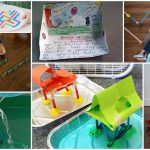Online learning has become an increasingly popular option for students of all ages and backgrounds. According to the Babson Survey Research Group, over 6.3 million students took at least one online course in 2016, up from 1.6 million students in 2002. With the development of new technologies and increased internet access, online learning provides a flexible and convenient way for people to further their education and career skills. Here we explore some of the main benefits this modern form of education offers students.
Flexibility and Convenience
One of the biggest advantages of online learning is the flexibility and convenience it provides. Students can access their course materials, engage with classmates, and complete assignments anywhere at any time. This allows them to fit education around work, family, and other commitments. As Bill Gates stated, “Technology is making it possible for more people to learn online, at their own pace, conveniently, and at lower cost.” Some examples of the flexibility online education offers includes:
- Self-paced learning – Students can take more time to digest materials and move through courses at their own pace. This helps them balance learning with other responsibilities.
- Accessibility – Course materials can be accessed on any device, from anywhere with an internet connection. This enables learning on-the-go.
- Asynchronous communication – Tools like discussion boards allow collaboration and communication without coordinating schedules.
- Repeating lectures – Recorded video lectures can be rewatched to reinforce retention of information.
- Practical timing – Without commuting to a physical classroom, online students save time and can eliminate disruptions to family and work.
Cost Savings
Online education programs tend to cost significantly less than traditional on-campus degree options. Some ways online learners can save money include:
- Lower tuition rates since online schools do not have to maintain physical campuses and facilities. Public schools charge an average of 28% less for online bachelor’s programs according to U.S. News data.
- No housing, commuting, or related costs.
- Potentially cheaper course materials like e-textbooks.
- Pell grants and other federal aid can be applied to many accredited online programs.
- In-state tuition rates are available for online schools regardless of student location.
- Increased earning potential from finishing degree sooner.
More Course and Program Options
The rise of online education has expanded students’ options in terms of courses, degree programs, and schools to choose from. Learners who may not have a local college that offers a specific degree or field of interest can now search nationwide or even globally for online programs that meet their needs. As Michelle Obama stated, “That’s one thing online education does – it opens it up.” Some examples include:
- Access to niche degree programs not locally available like marine biology.
- Ability to take unique elective courses from international schools.
- Options for online degrees from top universities across the country.
- Dual degree programs combining studies from multiple online colleges.
- Massive open online courses (MOOCs) offer free learning from major universities on almost any topic imaginable.
Develops Practical Digital Skills
Participating in an online education program allows students to gain experience with modern communication methods and collaboration tools they can apply directly in the digital workplace. Some examples of practical digital skills improved by online learning include:
- Web conferencing tools (Zoom, Microsoft Teams, etc.)
- Learning management systems like Canvas, Blackboard
- File sharing and cloud storage services like Google Drive
- Building online networks and digital communication etiquette
- Improving typing speed and technical troubleshooting
Prepares for Remote Work Environments
Remote work has been growing for years and became widely adopted during the COVID-19 pandemic. With many roles remaining remote going forward, being comfortable learning and working online will be a valuable skill for graduates entering the workforce. As educator Lisa Nielsen stated, “Kids in online programs are gaining the skills that will help them succeed in the 21st century.” Some examples include:
- Experience collaborating on virtual teams
- Managing time effectively
- Staying focused in online environments
- Leveraging online tools to produce quality work
- Gaining confidence communicating through technology
Learning Without Limits
Online education opens education possibilities for many non-traditional students who would otherwise face accessibility challenges or lack of options with traditional classroom formats. Some examples include:
- Students in rural or remote areas without nearby higher education institutions. According to Eduventures analyst Richard Garrett, “The big growth opportunity for online learning is providing access to students who can’t get access through the traditional system.”
- Working adults balancing careers and families.
- Individuals with medical conditions or disabilities restricting mobility.
- Military service members deployed abroad.
- Stay-at-home parents and caretakers.
- High school students getting an early start with college-level courses.
Allows Combining Work and Education
Online learning provides the schedule flexibility for students to more easily balance school with full or part-time employment. Being able to earn an income while completing education improves affordability and lowers student loan burdens. Research by the Learning House and Aslanian Market Research showed 85% of online students chose online programs due to combining work and education compared to just 28% of on-campus students.
Fosters Independent Learning
As educator Dr. Barbara Means stated, “The online environment can be powerfully motivating for students to go beyond basic requirements, since they must organize their time and effort to complete learning activities independently.” Key ways online education supports self-directed learning include:
- With asynchronous schedules, students take more initiative in pacing their work.
- Technical and time management skills are improved.
- Students must be more proactive without face-to-face instructor reminders and interactions.
- A sense of ownership over learning is developed when students play a more active role.
- Digital literacy skills are built through independent online research.
Provides a Test Drive of Programs
One of the major concerns with any degree program is not knowing if it will meet a student’s interests or career aspirations until after enrollment. Taking online courses or MOOCs from a school first provides a risk-free way to experience programs under consideration. Students can get a feel for instructors, curriculum quality, and learning formats before committing. According to Inside Higher Ed and Gallup research, 96% of academic leaders believe offering online courses boosts college enrollment.
Customized Learning Paths
Unlike traditional degree programs with rigid curriculum requirements, online education enables students to often customize their own learning paths:
- Transferring and combining credits from multiple schools.
- Testing out of mastered prerequisites through tools like CLEP exams.
- Choosing own pace and order of courses.
- Selecting a unique mix of electives to match interests and goals.
- Building interdisciplinary studies across departments and colleges.
- Supplementing degree studies through MOOCs and other informal learning.
While online education is not for everyone, for many types of students it offers an invaluable opportunity and quality alternative to traditional campus-based learning. The flexibility, affordability, accessibility, and other benefits are expanding possibilities for students worldwide. With new technologies and global connectivity, online learning is positioned to become an integral part of the future of education.


















I have spent some great time there, too. You post returned me to this awesome road-trip that me and my girlfriend had back in 2011. Keep up the good work John, looking forward to your new posts.
Your road-trip was awesome, too. I have heard some stories on how you swim with dolphins. Sea was warm, sand was there – heaven on Earth.
Just a quick note on this road-trip diary – beaches that we visited where completely abandoned and wild.
There was no water so we could’t make any shower. We have to wait for return home.
Beside that, we had really really good time here and I wish that one day you visit this magic place, too.
I couldn’t agree more with you John! Thanks for sharing this brilliant article!
You are welcome Lisa, really appreciate it.